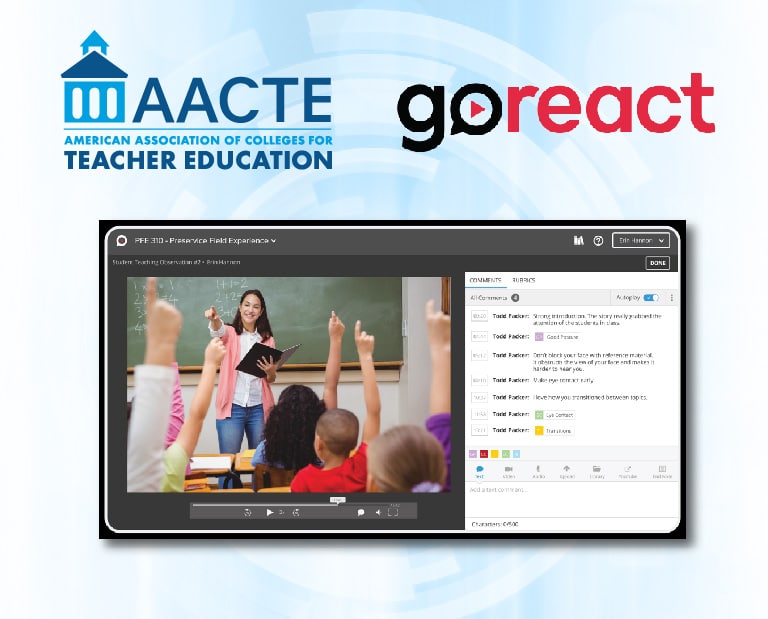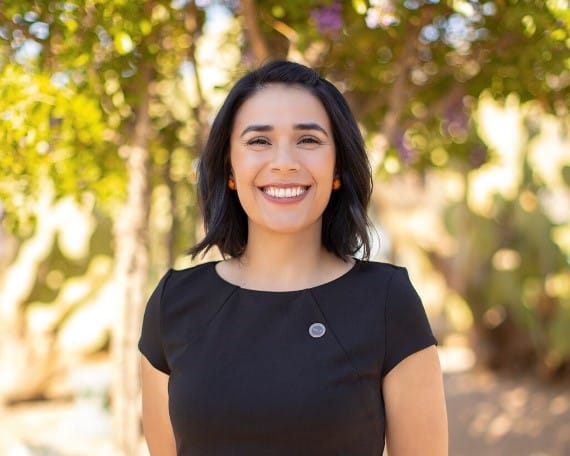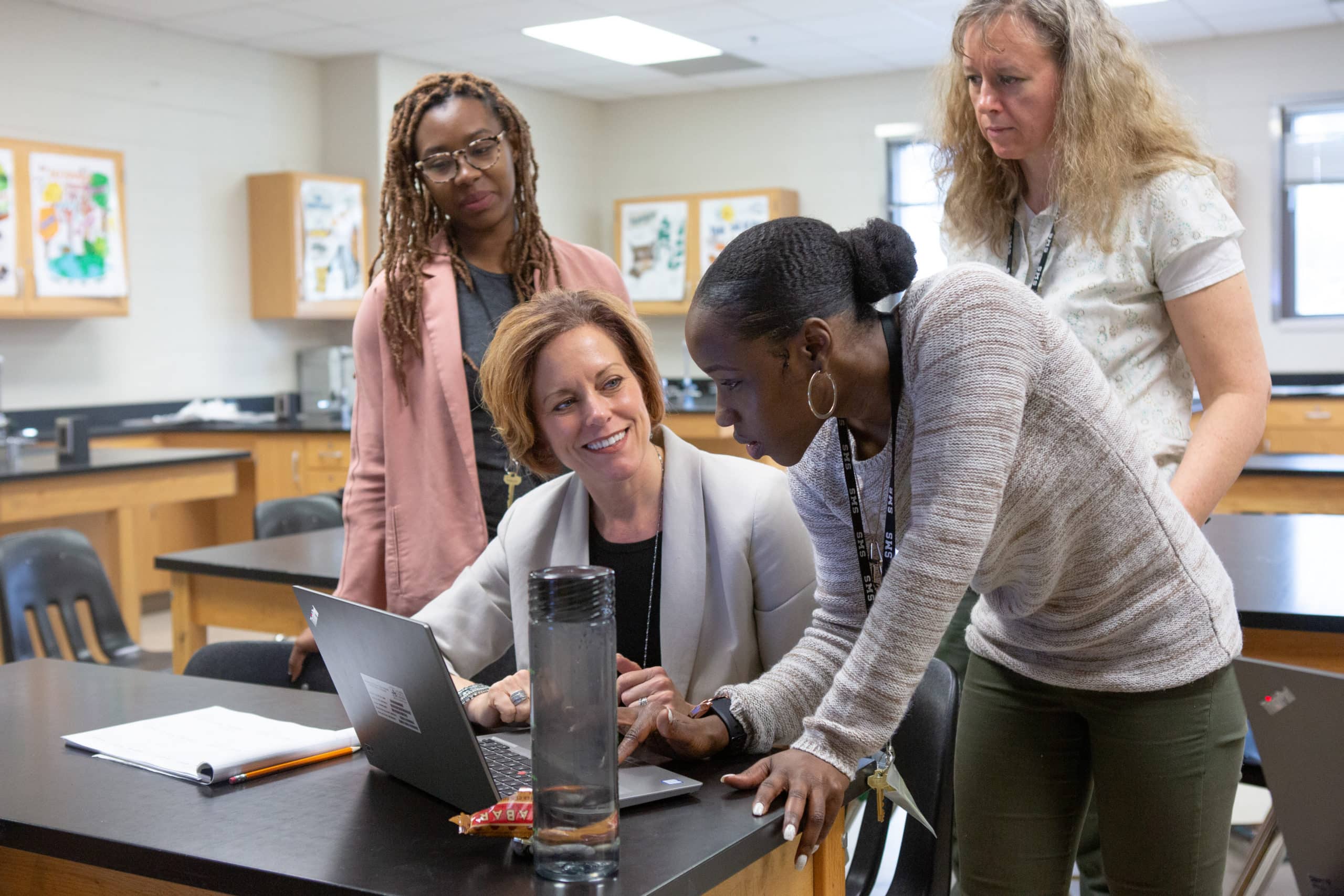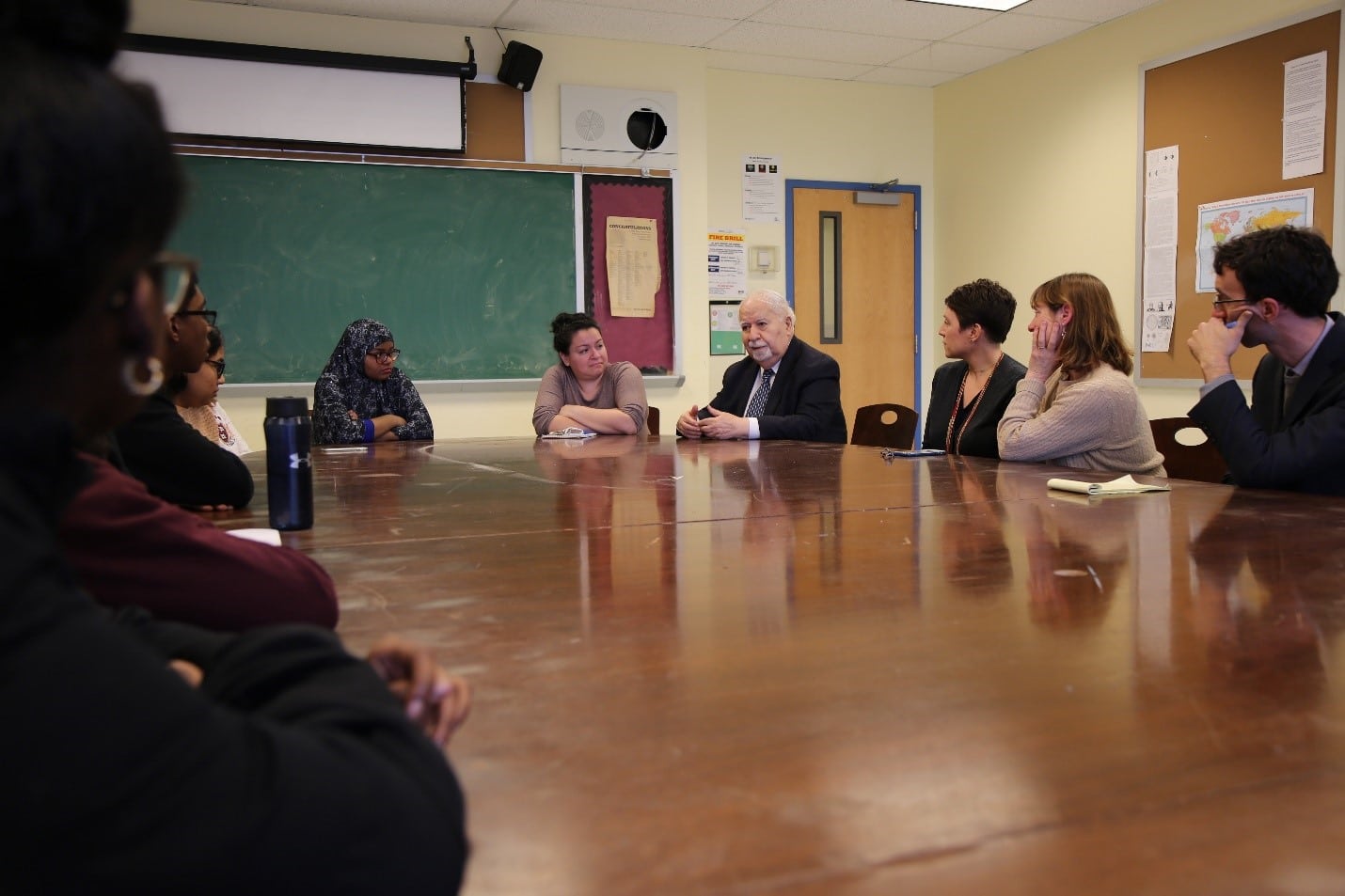14 Jun2021
By Kristine Schutz
 Video is a powerful tool—for teacher candidates and teacher educators alike—to engage in reflective practice and accelerate professional growth. And I can say this from personal experience as it has helped me grow as an educator.
Video is a powerful tool—for teacher candidates and teacher educators alike—to engage in reflective practice and accelerate professional growth. And I can say this from personal experience as it has helped me grow as an educator.
As a proponent of video, I believed this innovative professional learning approach would be an asset to the undergraduate elementary teacher preparation program at the University of Illinois at Chicago (UIC). Our preparation program is organized around a decolonizing framework that recognizes that schools are designed for acculturation and colonization. And, as such, we prepare teachers who simultaneously teach in—and resist—that context (Trinder, 2021).
As my colleagues and I were talking about bringing video coaching to our program, questions were raised about how to make sure that we do not lose the context-driven aspects of our program that are attended to as our faculty come to know the children, schools, and communities in which our students learn to teach. Questions often associated with any new technology implementation were also brought up: How hard is this going to be to implement? How am I going to use it? Is it going to take too much time?
08 Jun2021
By Diana Fingal

It’s not enough for educators to know how to use technology; they have to understand the pedagogical principals underpinning the tools so that tech is used effectively and gives students agency over their learning.
For example, technology should not merely be a replacement for nontech tools. An electronic whiteboard is merely an expensive chalkboard if teachers use it only to project lessons and homework assignments. But technology can transform learning when it is used in a way that allows students to collaborate with peers and experts across great distances, gather and analyze large data sets, and use creation tools to make art that can be critiqued by an engaged audience.
03 Jun2021
By Kristin Hamilton
The National Board of Professional Teaching Standards is an anti-racist and inclusive organization. We believe that educators must help students consider their role in a diverse world, value individual differences, and—especially in times such as these—we believe in the power of the teaching profession to defend what is good and right for all people.
The National Board for Professional Teaching Standards is seeking applicants from the educator preparation community to serve on the committee that will develop standards in the areas of diversity, equity, and inclusion. These Board certification standards for practicing teachers also impact teacher preparation programs and assessments, professional learning programs, and state licensure systems across the country. The 10-12 committee members will receive an honorarium and will be representative of the diversity among teaching professionals and the students and communities they serve.
24 May2021
By Meghan Grenda
 AACTE and GoReact recently announced a partnership that grants members additional access to video assessment tools. GoReact provides colleges and universities with interactive tools to facilitate video observation, coaching, and assessment for teacher educators everywhere. The software provides live and remote observation and assessment via simple, interactive tools, where candidates receive individualized feedback.
AACTE and GoReact recently announced a partnership that grants members additional access to video assessment tools. GoReact provides colleges and universities with interactive tools to facilitate video observation, coaching, and assessment for teacher educators everywhere. The software provides live and remote observation and assessment via simple, interactive tools, where candidates receive individualized feedback.
Through the partnership, all AACTE members receive complimentary usage of GoReact’s video assessment platform.
- If you are not yet a GoReact user, your AACTE membership grants you free access until July 31, 2021.
- If you are an existing GoReact user, your AACTE membership grants you expanded access until July 31, 2021.
24 May2021
By Nicole Dunn
 AACTE partners with organizations that share its view that an intersectional lens is critical when educators are examining structures and practices that increase student discrimination and disadvantages. As Asian American and Pacific Islander Heritage Month comes to an end and Pride Month begins, one of AACTE’s partners, Human Rights Campaign’s Project THRIVE, is hosting a webinar with panelists that represent the intersection of these communities on May 27, 2:00 p.m. ET.
AACTE partners with organizations that share its view that an intersectional lens is critical when educators are examining structures and practices that increase student discrimination and disadvantages. As Asian American and Pacific Islander Heritage Month comes to an end and Pride Month begins, one of AACTE’s partners, Human Rights Campaign’s Project THRIVE, is hosting a webinar with panelists that represent the intersection of these communities on May 27, 2:00 p.m. ET.
21 May2021
By Richard Long
 During the COVID-19 pandemic, millions of children—at least one in five—have missed critical vaccinations that keep them healthy and our communities free from disease.
During the COVID-19 pandemic, millions of children—at least one in five—have missed critical vaccinations that keep them healthy and our communities free from disease.
Students without these vaccinations may not be eligible to return to in-person learning in the fall. Even worse, losing herd immunity could put millions of unvaccinated children and adults at risk for deadly or debilitating diseases such as measles, whooping cough and polio.
14 May2021
By NAPDS
As a member of the National Coalition of Educators, AACTE announces the release of the second edition of What it Means to be a Professional Development School: Nine Essentials, published by fellow member coalition member, the National Association for Professional Development Schools (NAPDS). AACTE shares NAPDS’s goal to support high quality teacher education through effective professional development and are looking forward to collaborating with them on projects aimed at achieving that goal.
The National Association for Professional Development Schools (NAPDS) recently announced the publication of its policy statement, What it Means to be a Professional Development School (PDS): The Nine Essentials (2nd Edition), a culmination of several years’ worth of work by the association’s Nine Essentials Committee. The committee worked to identify the relevance of the essentials, which were originally published in 2008, and how they are used in the field by schools of education and P-12 schools. The document brings to light an updated and robust version of the Nine Essentials grounded in key concepts and educational research.
13 May2021
By Michael Rose
To effectively amplify the voice of members to policy makers to better help them understand what is happening in the field and offer sound policy recommendations, AACTE partners with other organizations to highlight the importance of certain issues.
For example, AACTE is a member of the Committee for Education Funding (CEF). CEF was founded in 1969 with the goal of achieving adequate federal financial support for our nation’s educational system. The coalition is a voluntary, nonprofit, and nonpartisan group. AACTE is one of more than 100 member organizations that represent the full spectrum of education—early childhood education, elementary and secondary education, higher education, adult and career education, and educational enhancements such as libraries and museums. CEF’s current campaign is “5 Cents Makes Sense,” which calls for 5 cents of every federal dollar to be spent on education. The campaign’s official hashtag is #5Cents4EdFunding.
06 May2021
By Jasmine Estes
AACTE congratulates 2021 National Teacher of the Year Juliana Urtubey and AACTE member Institution The University of Arizona (UArizona) for preparing her for a distinguished teaching career. Urtubey holds a bachelor of arts in bilingual elementary education and a master’s degree in special bilingual education from UArizona.
 The Council of Chief State School Officers (CCSSO) today announced that Juliana Urtubey, an elementary school special education teacher, is the 2021 National Teacher of the Year.
The Council of Chief State School Officers (CCSSO) today announced that Juliana Urtubey, an elementary school special education teacher, is the 2021 National Teacher of the Year.
Urtubey, an educator for 11 years, teaches at Kermit R. Booker, Sr. Innovative Elementary School in Las Vegas, where she serves as a co-teacher in pre-kindergarten through fifth-grade special education settings and as an instructional strategist developing supports to meet students’ differing academic, social-emotional, and behavioral needs.
Known as “Ms. Earth” for her efforts to beautify schools and unify the community through murals and gardens, Urtubey has helped raise funds for garden programs at two Las Vegas schools. In one program, the garden was tended to by the student “Garden Gnomies” club and offered opportunities for innovative student learning and intergenerational learning and connections to the wider community.
04 May2021
By AACTE

Photo by Allison Shelley for EDUimages
On behalf of the American Association of Colleges for Teacher Education (AACTE), President and CEO Lynn M. Gangone issued the following statement to celebrate educators during National Teacher Appreciation Week:
“One of the most pervasive truths in American public education is that great teachers transform lives. COVID-19 illuminated the vital role teachers play in our communities. As parents struggled to balance work, supervise virtual classrooms, and co-educate their children, a new awareness and appreciation arose for the influence, importance, and value of teachers. Educators across America have learned new technologies, created innovative ways to reach students online, and, above all, kept education moving forward. As we celebrate National Teacher Appreciation Week, AACTE thanks these critical front-line workers for their adaptability, ingenuity, and dedication and recognizes the difficult circumstances they face in returning to the classroom.
03 May2021
By Vartan Gregorian

Editor’s note: This essay was submitted to AACTE days before Vartan Gregorian, president of Carnegie Corporation of New York, died on April 15, 2021. It is from his last writing project and focuses on a subject he held dear — teaching and learning. This is an edited excerpt of an essay published in the Spring 2021 edition of Carnegie Reporter magazine.
On Teacher Appreciation Day and every day, teachers play a central role in shaping our society.
America has always been and will always be a work in progress. Every generation has contributed and must contribute to that ongoing progress.
03 May2021
By Gaelle Gilbert

Teacher Appreciation Week: May 3-7, 2021
Each year, the National Parent Teacher Association (PTA), in partnership with Office Depot and Office Max, celebrates educators. The theme, #ThankATeacher, invites all Americans to take time to honor the service teachers provide. Now more than ever, it is critical to recognize the difficult and sometimes at-risk work teachers face in the classroom during the health pandemic. Schools across the country face teacher shortages so this week’s celebration conveys an important message that teachers matter.This year’s #ThankATeacher activities include collecting imagery for scrapbooking to encourage students and parents to remember all the good from educators this year. The National PTA asks participants to share on social media platforms, including Facebook, Twitter, and Instagram, hashtags and resources from the toolkit available on their website. All of the resources within the toolkit are available in English and Spanish.
03 Apr2021
By The Wallace Foundation
Learn about the findings from a new, comprehensive study commissioned by The Wallace Foundation, The Role of Assistant Principals: Evidence and Insights for Advancing School Leadership. Based on two decades of research, the synthesis focuses on a role that is increasingly prevalent but often overlooked. The report suggests APs could become a more powerful force in advancing equity, student outcomes, and school leadership goals.
The Role of Assistant Principals: A New Synthesis Offers Evidence and Insights
Tuesday, April 13, 2021 from 1:00 – 2:00 p.m. ET via Zoom
We invite you to register for this important, one-hour event.
30 Mar2021
By Bart Epstein
The U.S. federal government, states, and school districts collectively spend between $26 and $41 billion per year on education technology materials, according to a new analysis released today by a coalition of education nonprofits led by the EdTech Evidence Exchange. These estimates reflect a troubling lack of understanding about how much the country actually spends on edtech, and also suggest that even according to the lowest estimates, the country spends at least twice the $13 billion figure often previously cited by industry analysts and policymakers.
“We are spending billions of dollars on technology with almost no information about which tools actually work, where, and why,” said Bart Epstein, CEO of the EdTech Evidence Exchange and a research associate professor at the University of Virginia School of Education and Human Development. “We know that technology can have a profound impact on educational outcomes, but thousands of tools and programs used by schools are creating confusion for educators and administrators, not to mention students and parents. When poorly selected or implemented, they waste teacher time and energy and rob students of learning opportunities. Making good on the transformative potential of education technology starts with listening to, and learning from, people who are actually using it.”
22 Mar2021
By Lynn M. Gangone and Daniel Domenech

Adobe Stock Photos
AACTE President and CEO Lynn M. Gangone and Daniel A. Domenech, executive director of AASA, The School Superintendents Association, authored this article that originally appeared in the District Administration and is reprinted with permission.
 Our nation’s education ecosystem is complex and multifaceted. When one component of the ecosystem is impacted, it creates a ripple effect that is felt throughout the entire system. The onset of the COVID-19 pandemic created a tidal wave of uncertainties, resulting in budget cuts, teacher shortages, and remote learning challenges.
Our nation’s education ecosystem is complex and multifaceted. When one component of the ecosystem is impacted, it creates a ripple effect that is felt throughout the entire system. The onset of the COVID-19 pandemic created a tidal wave of uncertainties, resulting in budget cuts, teacher shortages, and remote learning challenges.
An ongoing concern for school districts, teacher shortages have now become more severe. Teachers are leaving the profession at an accelerated rate, due primarily to health concerns and budget furloughs, and forcing superintendents to close schools not because of infection, but due to a lack of personnel to keep them open. The shortage also expands beyond teachers. It includes bus drivers, cafeteria workers, custodians, and essential support staff. Such reductions, caused by budget cuts resulting from the pandemic, are having a crippling effect upon school districts, and increased operational costs are eroding critical funds necessary to hire the staff desperately needed for in-school instruction.
 Video is a powerful tool—for teacher candidates and teacher educators alike—to engage in reflective practice and accelerate professional growth. And I can say this from personal experience as it has helped me grow as an educator.
Video is a powerful tool—for teacher candidates and teacher educators alike—to engage in reflective practice and accelerate professional growth. And I can say this from personal experience as it has helped me grow as an educator. 







 AACTE and GoReact recently announced a partnership that grants members additional access to video assessment tools. GoReact provides colleges and universities with interactive tools to facilitate video observation, coaching, and assessment for teacher educators everywhere. The software provides live and remote observation and assessment via simple, interactive tools, where candidates receive individualized feedback.
AACTE and GoReact recently announced a partnership that grants members additional access to video assessment tools. GoReact provides colleges and universities with interactive tools to facilitate video observation, coaching, and assessment for teacher educators everywhere. The software provides live and remote observation and assessment via simple, interactive tools, where candidates receive individualized feedback. AACTE partners with organizations that share its view that an intersectional lens is critical when educators are examining structures and practices that increase student discrimination and disadvantages. As Asian American and Pacific Islander Heritage Month comes to an end and Pride Month begins, one of AACTE’s partners, Human Rights Campaign’s Project THRIVE, is hosting a webinar with panelists that represent the intersection of these communities on May 27, 2:00 p.m. ET.
AACTE partners with organizations that share its view that an intersectional lens is critical when educators are examining structures and practices that increase student discrimination and disadvantages. As Asian American and Pacific Islander Heritage Month comes to an end and Pride Month begins, one of AACTE’s partners, Human Rights Campaign’s Project THRIVE, is hosting a webinar with panelists that represent the intersection of these communities on May 27, 2:00 p.m. ET. During the COVID-19 pandemic, millions of children—at least one in five—have missed critical vaccinations that keep them healthy and our communities free from disease.
During the COVID-19 pandemic, millions of children—at least one in five—have missed critical vaccinations that keep them healthy and our communities free from disease. The Council of Chief State School Officers (CCSSO) today announced that Juliana Urtubey, an elementary school special education teacher, is the 2021 National Teacher of the Year.
The Council of Chief State School Officers (CCSSO) today announced that Juliana Urtubey, an elementary school special education teacher, is the 2021 National Teacher of the Year.



 Our nation’s education ecosystem is complex and multifaceted. When one component of the ecosystem is impacted, it creates a ripple effect that is felt throughout the entire system. The onset of the COVID-19 pandemic created a tidal wave of uncertainties, resulting in budget cuts, teacher shortages, and remote learning challenges.
Our nation’s education ecosystem is complex and multifaceted. When one component of the ecosystem is impacted, it creates a ripple effect that is felt throughout the entire system. The onset of the COVID-19 pandemic created a tidal wave of uncertainties, resulting in budget cuts, teacher shortages, and remote learning challenges.